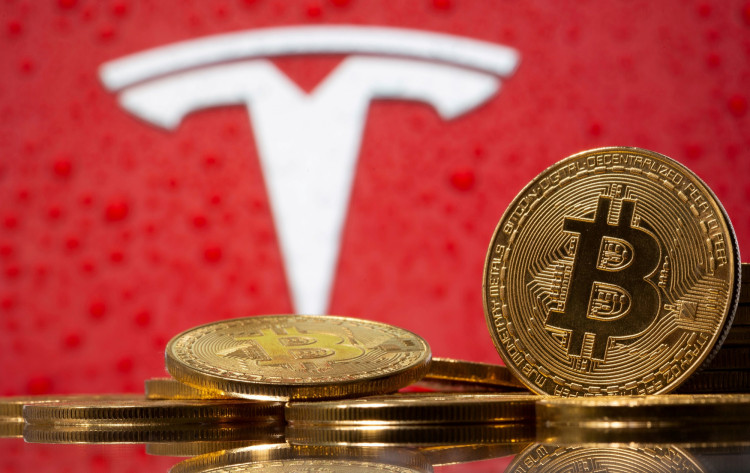Tesla will no longer accept Bitcoin as payment as a result of environment concerns, chief executive Elon Musk says.
"We are concerned about the rapid increasing use of fossil fuels for Bitcoin mining and transactions, especially coal, which has the worst emissions of any fuel," Musk said on Twitter. He added that cryptocurrency is a "good idea on many levels" but its promise cannot come at a "great cost to the environment."
Tesla, he added, wouldn't sell any of its Bitcoin.
The price of Bitcoin dropped by around 5% to $51,847. Tesla's stock fell 4.4% Wednesday.
The electric carmaker invested $1.5 billion in Bitcoin this quarter and then trimmed its position by 10%, according to chief financial officer Zach Kirkhorn during the company's quarterly earnings call in April. That sale made a $101 million "positive impact" to the company's profitability in the first quarter.
Kirkhorn said that Tesla chose bitcoin as a way to store cash while still having access to it, all while offering a stronger return on investment than more conventional central bank-backed safe havens. Of course, the higher yields offered by volatile digital currency come at a higher risk.
Bitcoin operates on a "proof of work" consensus, which ensures that the network depends on mining to stay operational. The majority of bitcoin mining takes place in Russia and China.
Mining bitcoin will remain a dirty business until the energy grid decarbonizes, TechCrunch reported in February, though many mining operations now use renewable energies in part.
According to a 2019 study conducted by researchers at the Technical University of Munich and the Massachusetts Institute of Technology, the entire Bitcoin network was responsible for up to 22.9 million tons of CO2 per year in late 2018, which is comparable to a big Western city or an entire developing country like Sri Lanka.
Total global greenhouse gas emissions in 2020 from the burning of fossil fuels were about 37 billion tons.
Musk hinted other cryptocurrencies were being considered. Those will likely be ones that use proof of stake consensus mechanisms, which networks like Ethereum have committed to transition to due to their energy efficiencies.





